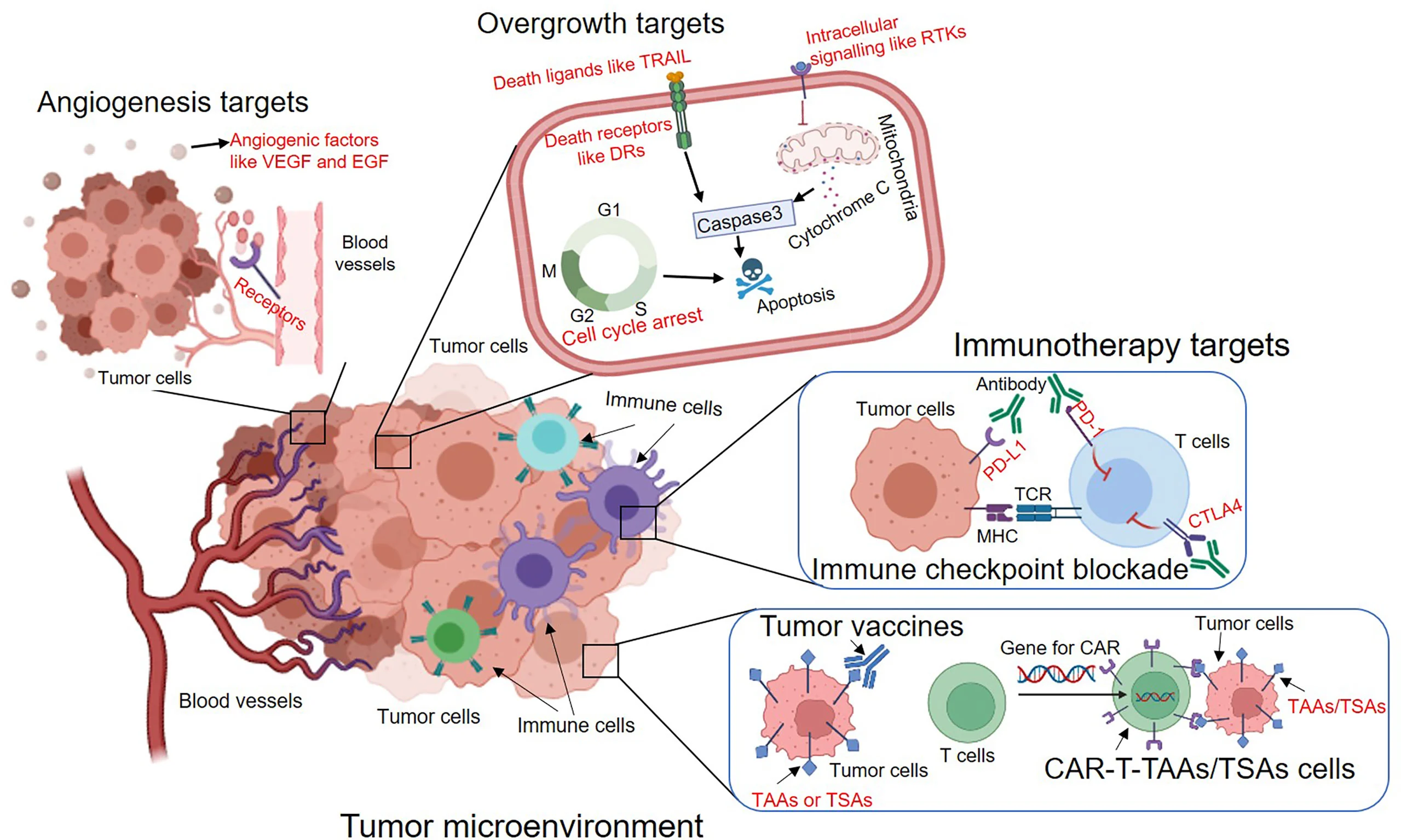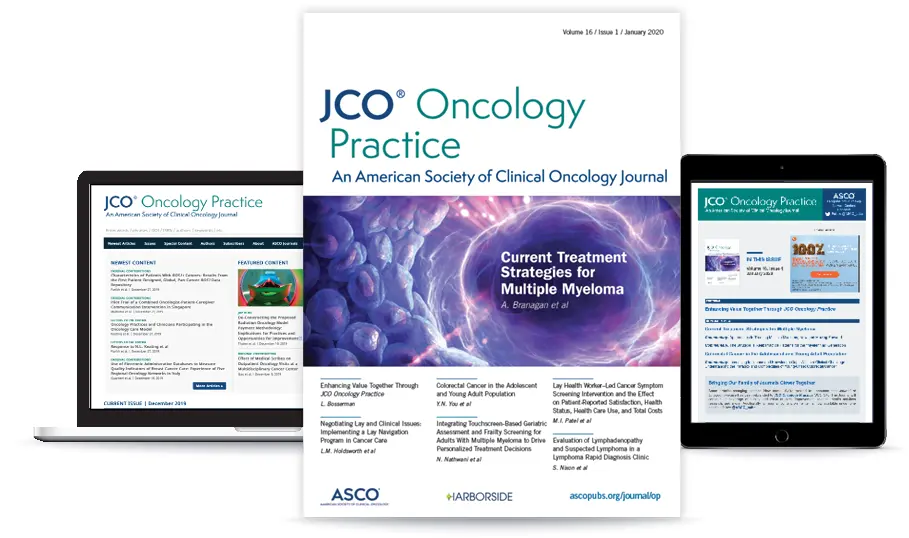The Journal of Clinical Oncology (JCO) is at the forefront of cancer research, offering the latest findings and advancements in the field. It is an invaluable resource for healthcare professionals, patients, and anyone seeking an in-depth understanding of cancer treatment options.
What is the Journal of Clinical Oncology (JCO)?

The Journal of Clinical Oncology is a peer-reviewed medical journal that publishes cutting-edge research, clinical trials, and reviews focusing on all cancer care aspects. It is the official journal of the American Society of Clinical Oncology (ASCO) and is one of the most trusted resources for oncologists, researchers, and clinicians worldwide. Founded in 1983, JCO has played a pivotal role in disseminating knowledge about cancer biology, treatment strategies, and survivorship care.
The Importance of JCO for Healthcare Providers and Patients
For healthcare providers, keeping up with the latest developments in oncology is critical for delivering high-quality care. The JCO serves as a platform for:

Clinical Research: It publishes groundbreaking clinical trials that drive cancer treatment progress.
Guidelines: ASCO guidelines, often published in the JCO, inform best practices in managing various cancer types.
Educational Resources: It provides articles that help healthcare professionals stay updated on new therapies and diagnostic tools.
For patients and their families, JCO indirectly improves care by guiding doctors and caregivers on the most up-to-date, evidence-based treatments. Additionally, patient-centered research is increasingly making its way into these publications, emphasizing quality of life, survivorship, and patient-reported outcomes.
Key Areas of Focus in the Journal of Clinical Oncology
1. Immunotherapy and Targeted Therapies
In recent years, one of the most groundbreaking areas of cancer research published in the JCO has been immunotherapy and targeted therapies. These treatments offer hope by harnessing the body’s immune system or targeting specific cancer cell markers to combat the disease more effectively.

Checkpoint Inhibitors: These drugs, such as pembrolizumab (Keytruda) and nivolumab (Opdivo), are designed to block proteins that prevent immune cells from attacking cancer cells. Studies published in JCO have shown the success of checkpoint inhibitors in treating cancers like melanoma, non-small cell lung cancer, and some types of lymphoma.
CAR-T Cell Therapy: Another revolutionary treatment involves modifying a patient’s T cells to attack cancer. JCO articles regularly explore how CAR-T therapy is used in hematologic cancers, particularly in cases of leukemia and lymphoma that have resisted other treatments.
Targeted Therapies: The journal also highlights advances in therapies that target specific genetic mutations, such as EGFR inhibitors for lung cancer and HER2 inhibitors for breast cancer. Understanding these mutations allows for more personalized treatments, reducing side effects and improving outcomes.
2. Precision Medicine

JCO frequently publishes research on precision medicine—an approach that tailors treatment based on individual genetic profiles, tumor characteristics, and other biomarkers. This method allows for more precise targeting of cancer cells while minimizing damage to healthy tissue.
For example, the JCO has featured studies on liquid biopsies, a technique that analyzes circulating tumor DNA in the blood. This non-invasive method can help detect cancer early, monitor its progression, and determine how well a patient responds to treatment.
3. Hematology-Oncology Advances

The field of hematology-oncology, which deals with blood cancers such as leukemia, lymphoma, and multiple myeloma, has seen significant breakthroughs in recent years. JCO has been at the forefront of publishing these discoveries, many of which have changed the treatment landscape.
Novel Therapies: New therapies like bispecific antibodies and small molecule inhibitors are promising in treating blood cancers. For instance, the Veneto lax, often discussed in JCO, has become a game-changer in chronic lymphocytic leukemia (CLL) treatment.
Stem Cell Transplantation: The journal also focuses on advances in allogeneic stem cell transplantation, a potentially curative option for many blood cancers. Recent publications have examined ways to reduce complications such as graft-versus-host disease and improve the success rate of transplants.
4. Clinical Trials and Global Oncology

One of JCO’s strengths is its comprehensive reporting on clinical trials. Whether phase I trials assess new drugs’ safety or phase III trials confirm their efficacy, JCO covers the entire spectrum.
Global Reach: The journal also emphasizes global oncology, recognizing that cancer treatment challenges differ worldwide. By featuring studies from low- and middle-income countries, JCO highlights disparities in care and strategies to improve cancer outcomes globally.
Read more: Restoring Independence: Occupational Therapy for Cancer Patients
5. Cancer Survivorship and Quality of Life

Beyond treatment, the JCO is also dedicated to improving the quality of life for cancer survivors. The journal features research on long-term side effects of treatment, mental health considerations, and survivorship care plans. These articles help oncologists provide holistic care, addressing the cancer and the whole person.
Recent Highlights in JCO (2024)

1. Breakthroughs in Hematologic Malignancies
In 2024, JCO highlighted the success of bispecific T-cell engager (BiTE) therapies in treating acute lymphoblastic leukemia (ALL). These therapies link T cells with cancer cells, triggering an immune response. The latest trials show promising survival rates for patients with relapsed or refractory ALL.
2. Advances in Liquid Biopsies
Recent studies published in JCO emphasize the power of liquid biopsies for early cancer detection and monitoring minimal residual disease. In breast cancer patients, liquid biopsies have demonstrated an ability to identify cancer recurrence months before traditional imaging would detect it, allowing for earlier intervention.
3. Immunotherapy in Rare Cancers
While immunotherapy has become a cornerstone for treating more common cancers, its application in rare cancers like sarcomas and neuroendocrine tumors is gaining ground. JCO has featured several clinical trials showing how checkpoint inhibitors and other immune-based treatments can offer hope for these hard-to-treat malignancies.
4. CAR-T Therapy for Multiple Myeloma
CAR-T therapy continues to make strides, particularly in treating multiple myeloma. In recent JCO publications, new generations of CAR-T cells are showing greater efficacy with fewer side effects. These advancements are particularly encouraging for patients who have exhausted other treatment options.
Read more: Scarlet Science: Innovations in Hematology Oncology
Implications for Healthcare Professionals

For oncologists, staying informed about the latest research published in the JCO is crucial for making informed treatment decisions. By integrating new therapies like immunotherapy, precision medicine, and CAR-T into clinical practice, healthcare providers can offer their patients the most advanced options.
Implementing JCO Knowledge in Clinical Practice

Personalized Treatment Plans: With the rise of precision medicine, oncologists should consider genetic testing and biomarker analysis for their patients. This allows for tailored treatment plans that maximize efficacy and minimize side effects.
Utilizing Immunotherapy: Immunotherapy is becoming a standard treatment for various cancers, including melanoma, lung cancer, and lymphoma. However, not all patients respond the same way. By reviewing the latest JCO studies, oncologists can better understand which patients will likely benefit from these treatments.
What Does This Mean for Patients?
The research published in JCO translates to better, more personalized care for patients. As new treatments are developed and approved, patients can access therapies that may offer improved survival rates and quality of life. For instance:

Immunotherapy offers hope to those with cancers that have not responded to traditional treatments like chemotherapy and radiation.
Precision medicine and genetic testing can lead to highly individualized care plans, improving outcomes and reducing the trial-and-error approach often associated with cancer treatment.
Survivorship care ensures that patients receive long-term support for both physical and emotional well-being after cancer treatment.
By staying informed through the JCO, healthcare providers can deliver optimal, evidence-based care personalized to each patient’s needs. As the field of oncology continues to evolve, the Journal of Clinical Oncology will undoubtedly remain a cornerstone of cancer research and treatment innovation.











